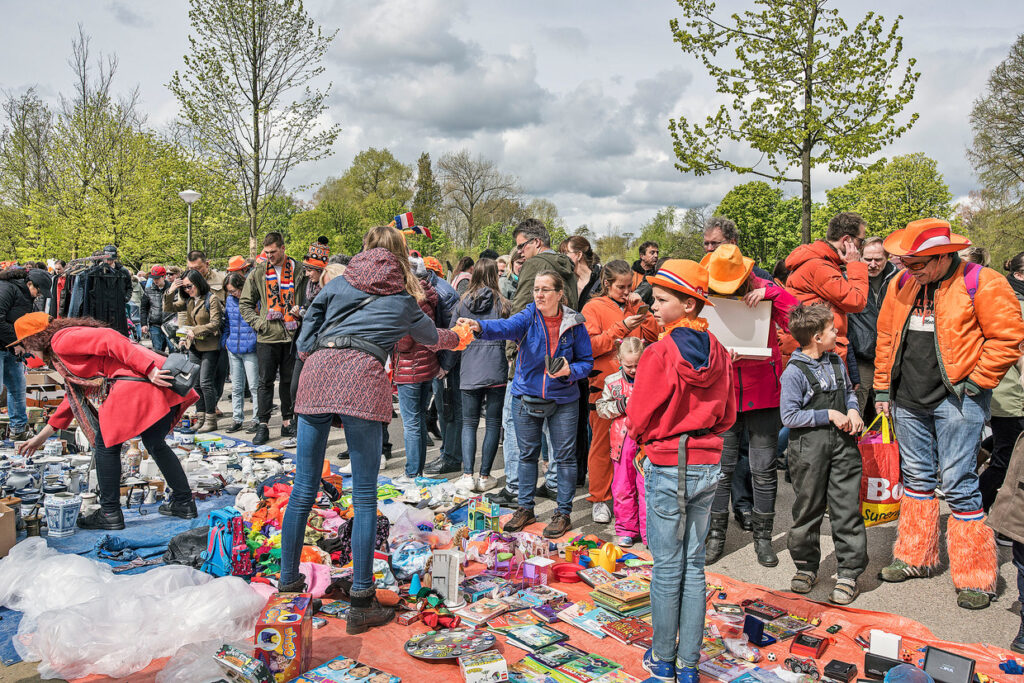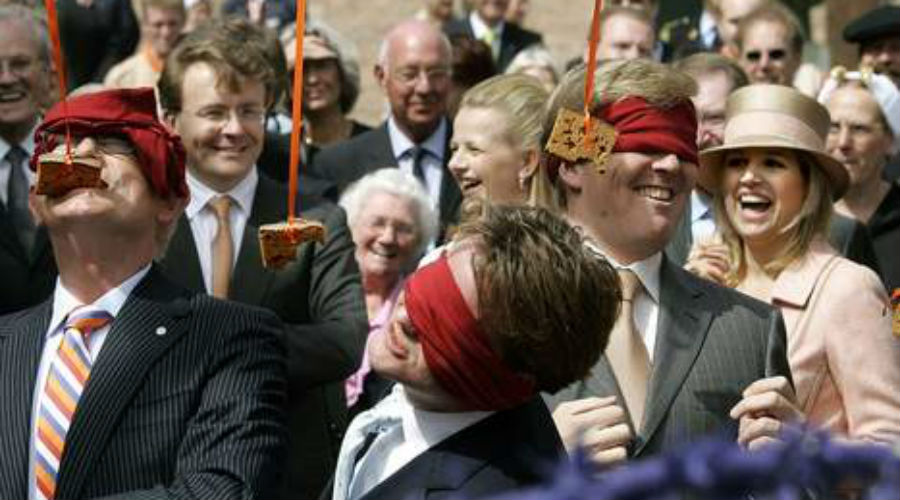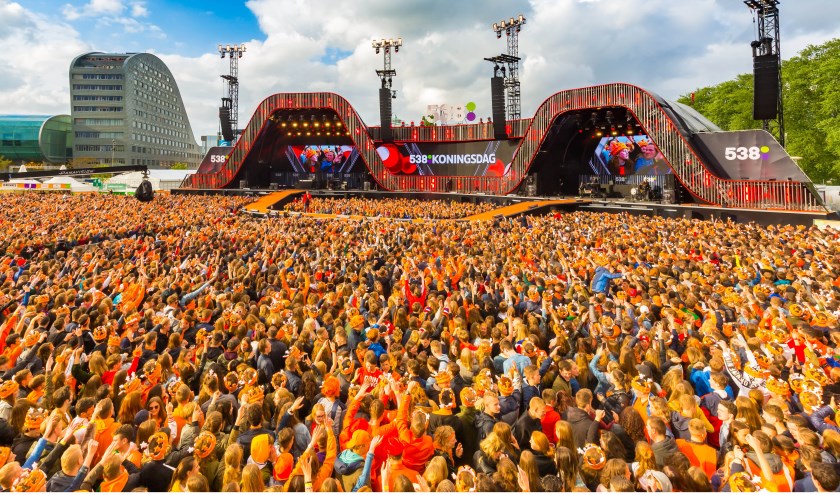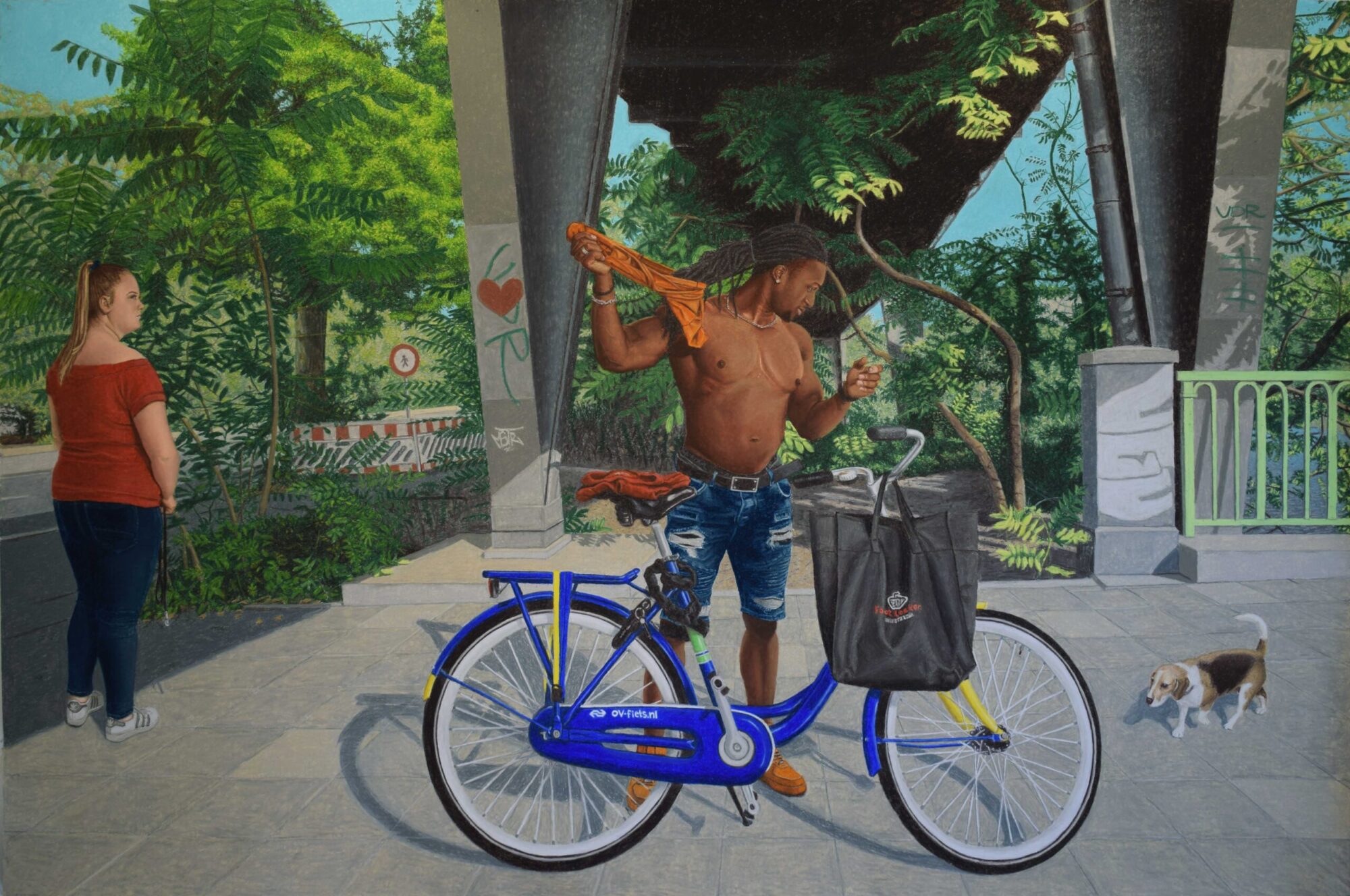A True National Holiday
The Dutch Historical Canon includes an interesting notion called Het Oranjegevoel (Canon van Nederland). This “orange feeling”, as it is unfortunately translated, shows up on two occassions: Sport events, mostly national football matches, and King’s Day. This makes King’s Day arguably the only “true” Dutch National Holiday (Margry 255). Over the years, the celebration of the sovereign’s birthday has changed drastically. I will focus on the most recent form of celebrations, especially since Queen’s Day became King’s Day, which happened at the inauguration of King Willem-Alexander in 2013. However, since this change of holiday has happened quite recently, not all the literature used will be discussing King’s Day. Therefore, a bit broader perspective of the last ten years.
When asked, around 80 percent of the Dutch people say that they do celebrate the holiday. About 29 percent of the people said that they watched the celebrations and royal visit to a city or town on television, 33 percent of the people went to a flea market and another 32 percent said they celebrate the holiday outside on the streets of their town. 19 percent of respondents did not celebrate at all [MOU5] (NIPO 2011). As we can see from these numbers, the three biggest celebrations on the royal holiday are found in the tour of the royals, the flea markets and the festivities taking place in the streets. The most popular way to celebrate King’s Day, winning by only 1 percent difference, is the flea market. This phenomenon might be best described by the comedian John Fealey in a recording of the Comedy Factory. This British comedian describes the flea market as “The day that Dutch people go into their house and collect shit. […] And you take it from the house, put it outside your house, and be proud of it” (Fealey). However, there is an essence of truth in this comic description of the celebration. Essentially, the streets of many towns transform into a big selling space, where mostly children sell old toys, books, sweets or play an instrument. This day of year, everyone is allowed to sell without a permit, with the exception of alcohol, and therefore the people take advantage by trying to make some money from their old belongings or bakings. When imagining the flea market, the Dutch self-image of being traders comes to mind quite quickly. The stereotype of the Dutch as optimistic traders shows in this celebration. Even when it’s a holiday, the party can always include making a sale or two. The flea market image plays into this by giving children an easy introduction to the Dutch trade spirit. In this way, the flea market keeps the self-image of a trading nation alive.

Not all the celebrations of King’s Day do actually include the royal family. In this top three, only one does, namely watching the tour of the royals on television. This way of involvement of the royal family is actually relatively new. When Juliana was queen, the royals waved on the balcony of the palace where people could walk by, but when Beatrix became queen traditions changed and the royal family started visiting a different town every year. The chosen town tries to highlight their specialities and the royal family is invited to participate in traditional Dutch games like zaklopen or koekhappen. Although these games are also used as a mockery of the royals (Margry 258), it does highlight very traditional ways of Dutchness. Games like zaklopen and koekhappen are not played anymore, but do make a comeback on King’s Day. Therefore, they contribute to the more provincial Dutch stereotype of clogs, tulips and windmills. These traditional aspects are no longer a part of everyday life, but by making them a central part of the national holiday, the image revives.

The last popular way of celebrating King’s Day is described in a bit broader sense, namely as “going outside in the town”. This way of celebrating the day hints more at the way students and adults spent the day. Where the flea market is focussed on children, the squares and parks of cities also fill with people spending the holiday listening to different bands playing, drinking beer or even visiting a festival. This party-way of celebrating King’s Day especially shows really well the night before, called Koningsnacht, which is known as one of the busiest party-nights of the year. Beer sales rise significantly on this day of year, with over 50 percent more sales than on an average Friday night (Huizinga). Not only on King’s Night, but also on King’s Day parties are present. Festivals organised by radio station 538 in different cities are immensely popular among youth and students. This way of celebrating King’s Day does not even concern the royal family one bit, but is seen by some scholars as one of the reasons the Dutch emotionally, not rationally per se accept the royal family to keep on existing (Margry 263). This tradition of celebrating even the King’s birthday with beer and music plays into the tolerant stereotype of the Netherlands. Celebrating King’s Day without any presence of royalness, the Dutch add to the idea that you can do anything you want in the Netherlands, as long as you do not bother others. Also, the parties show a loose and dissolute stereotype that fits into the narrative of the period since the sixties, when an emphasis on soft drugs and fun arose.

